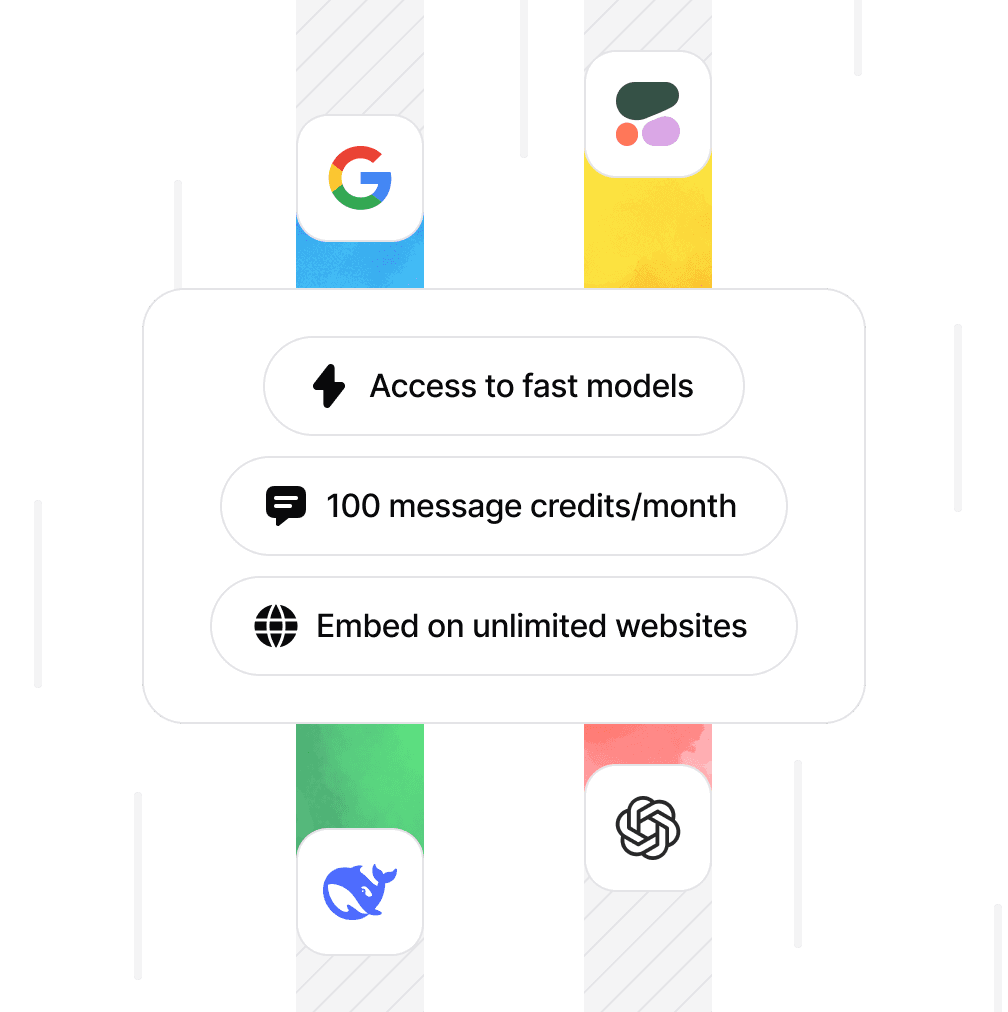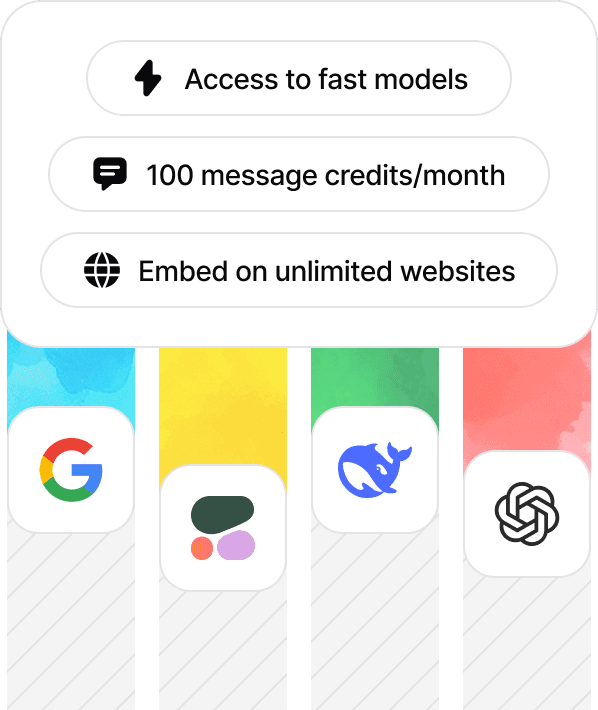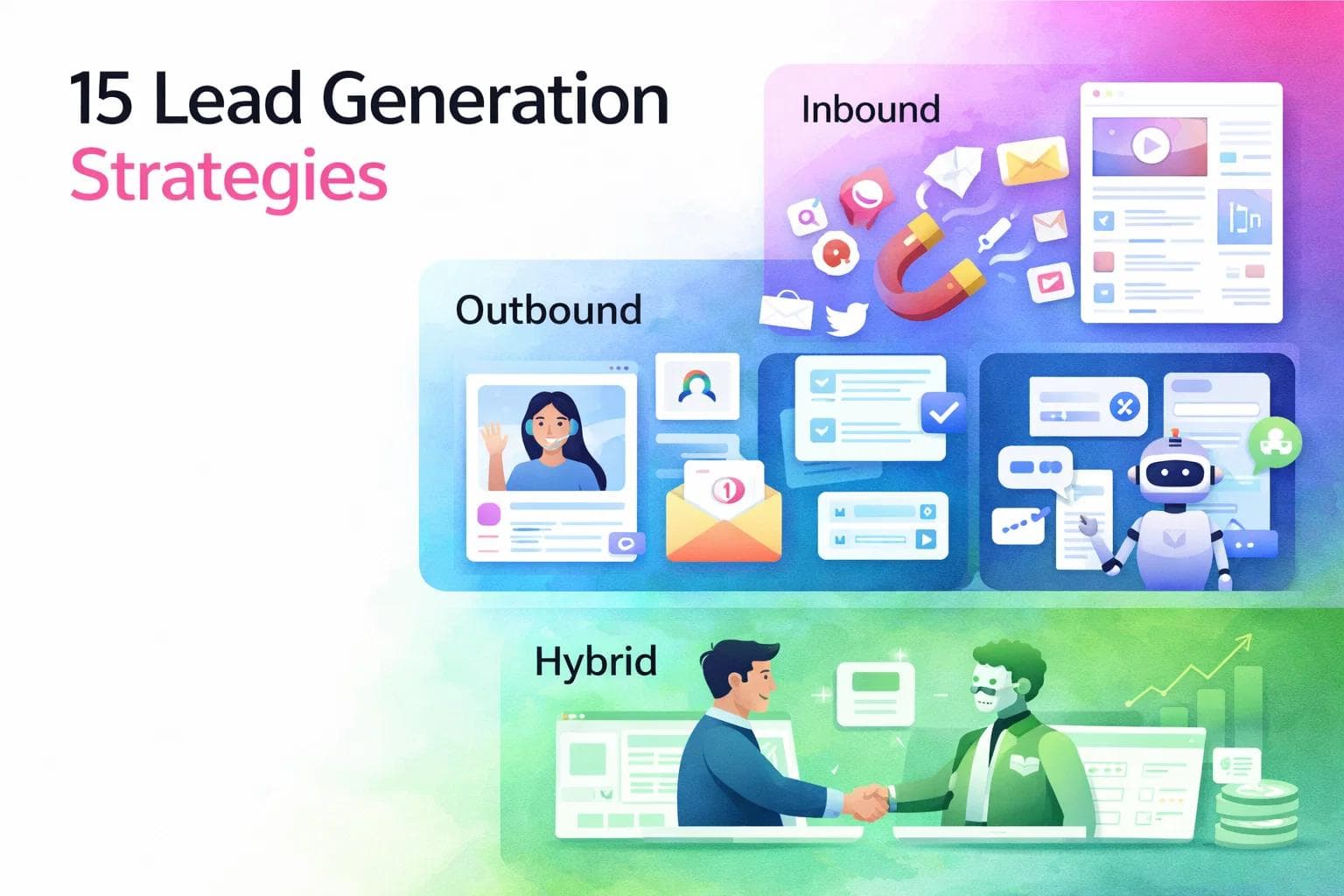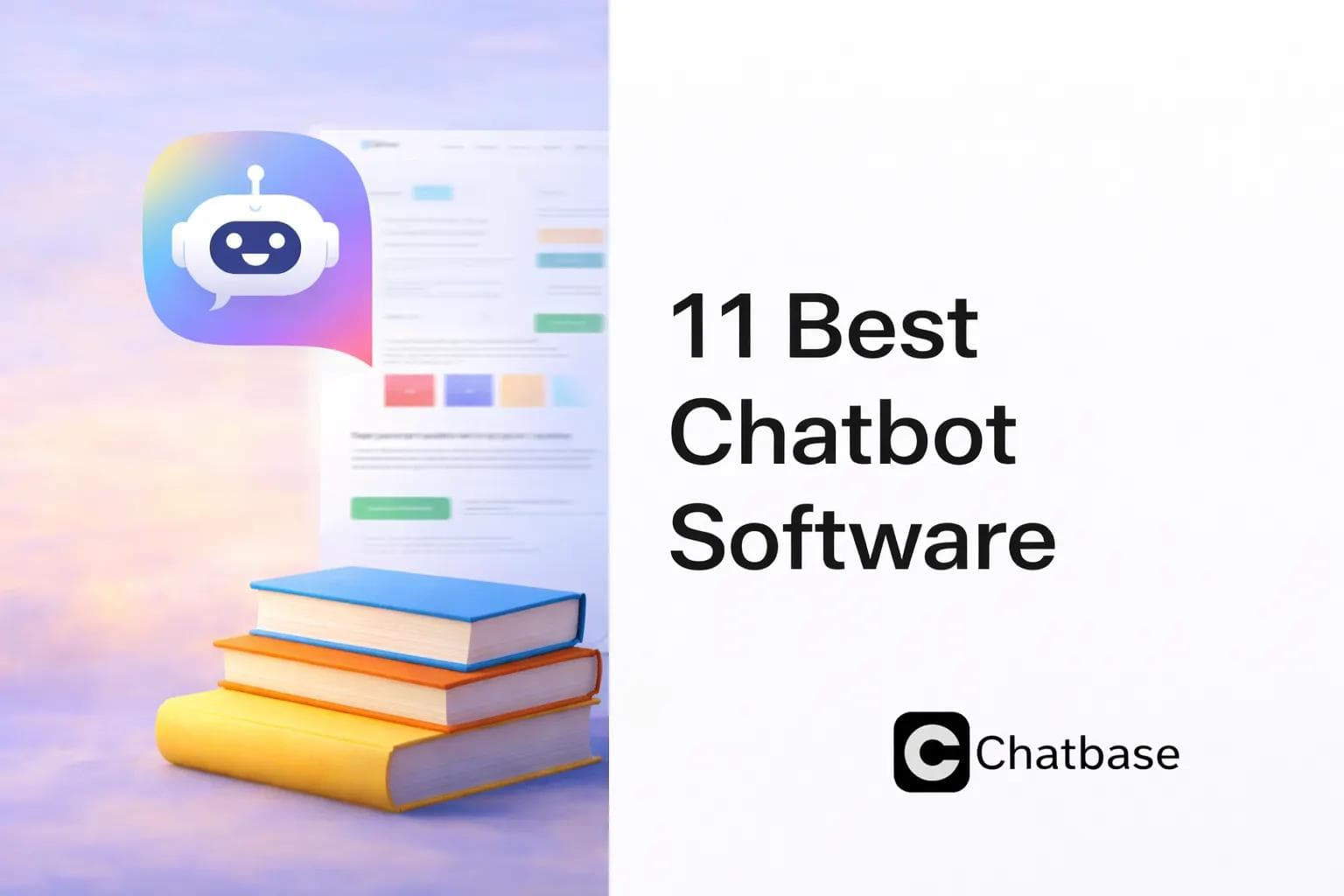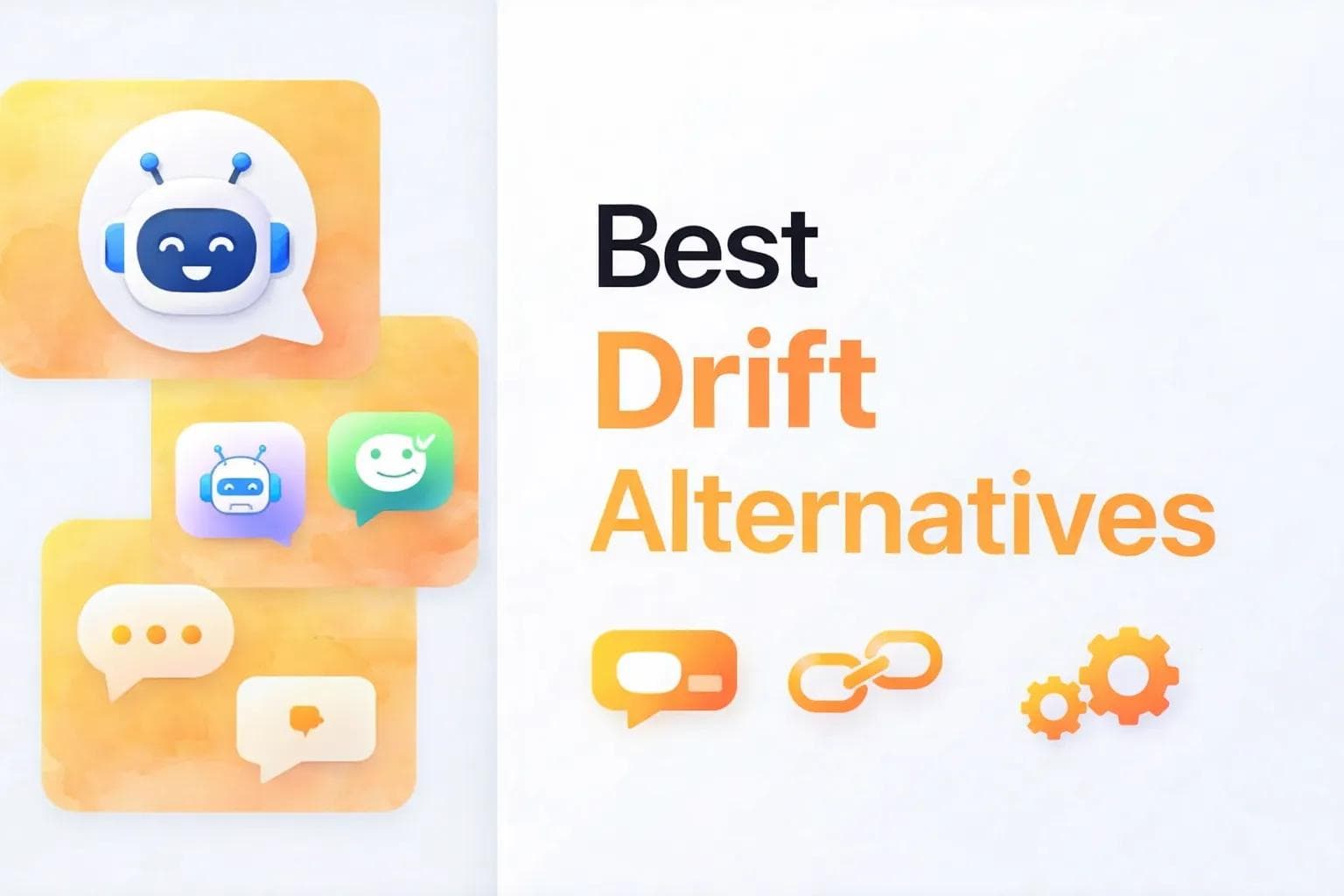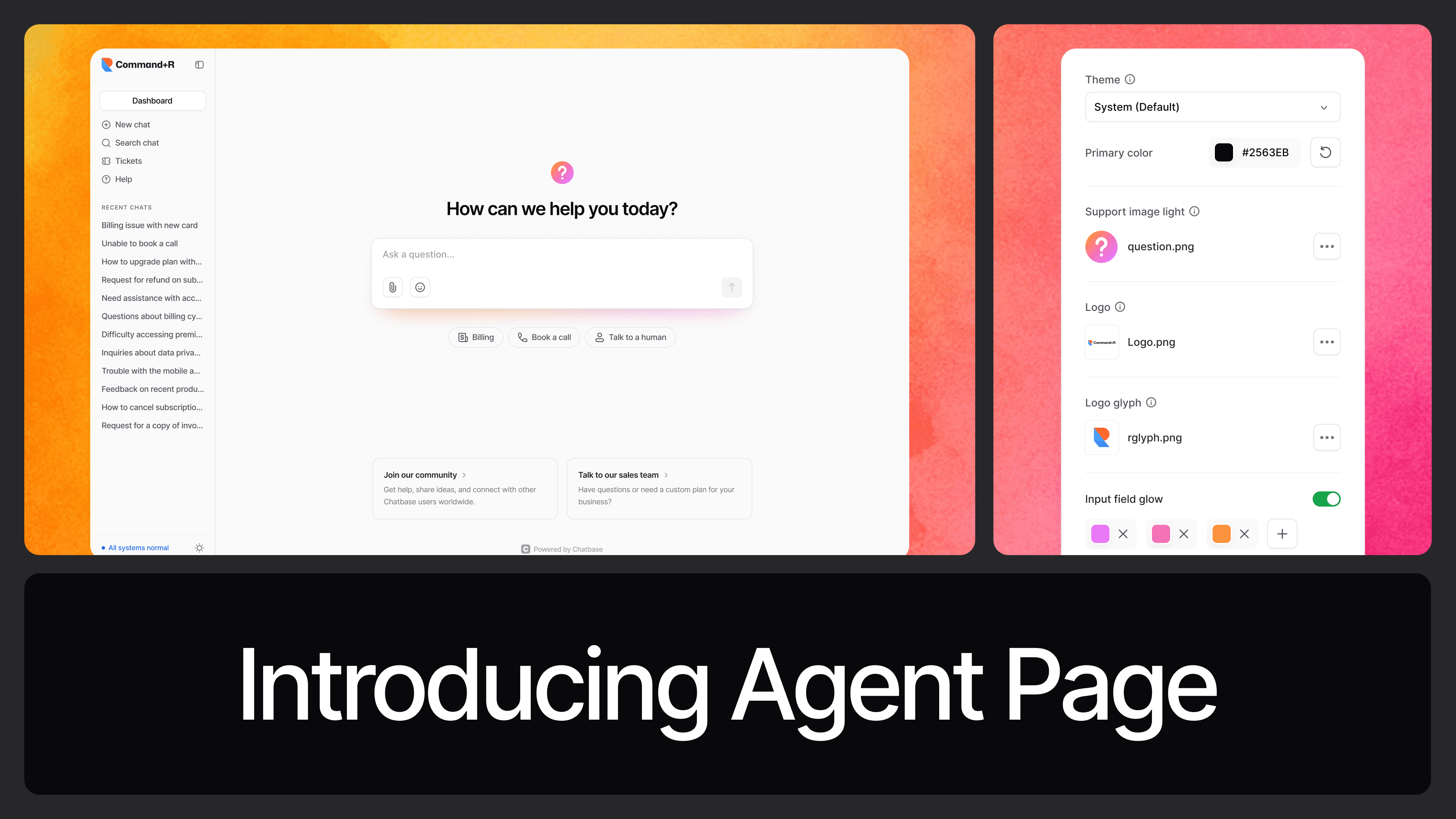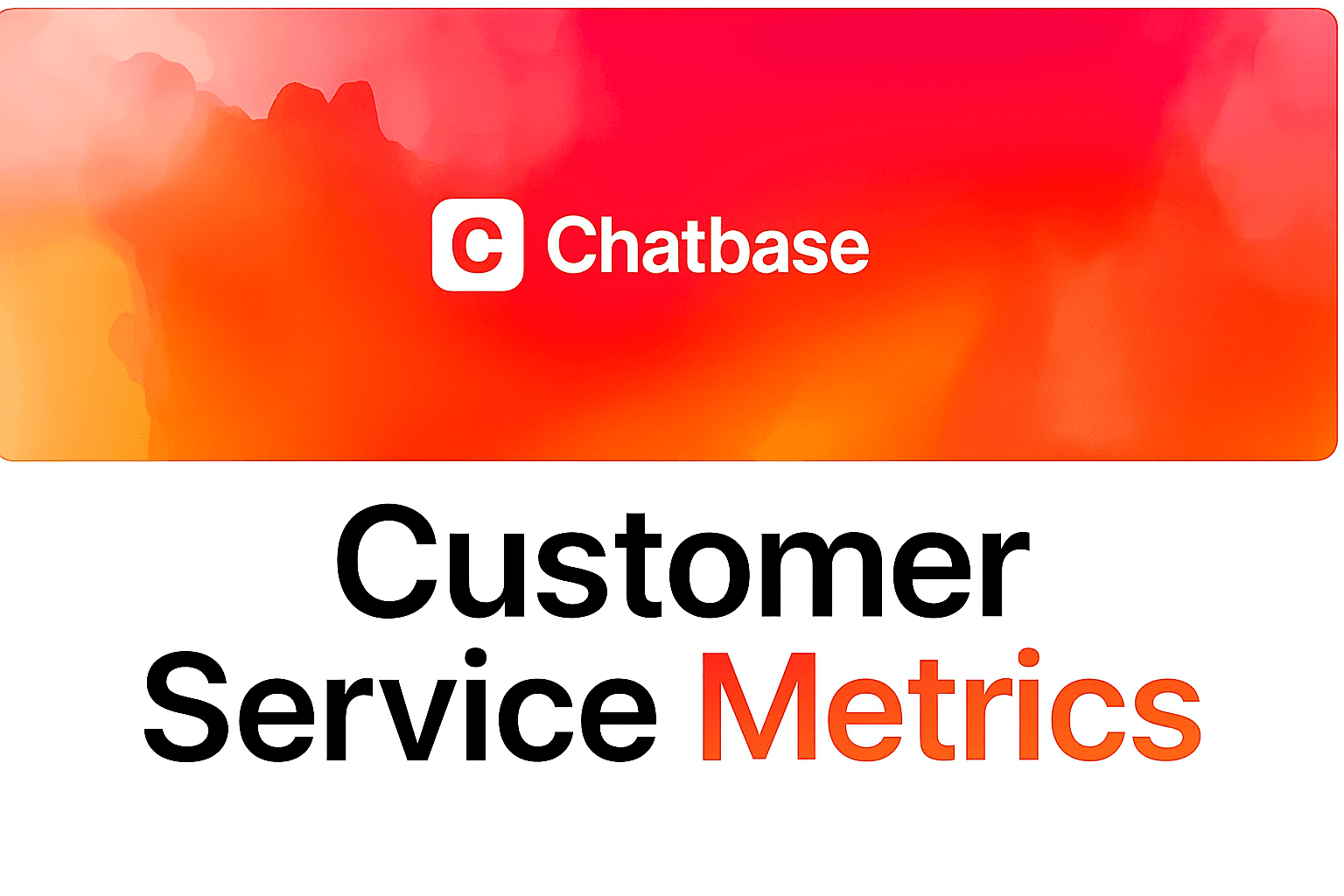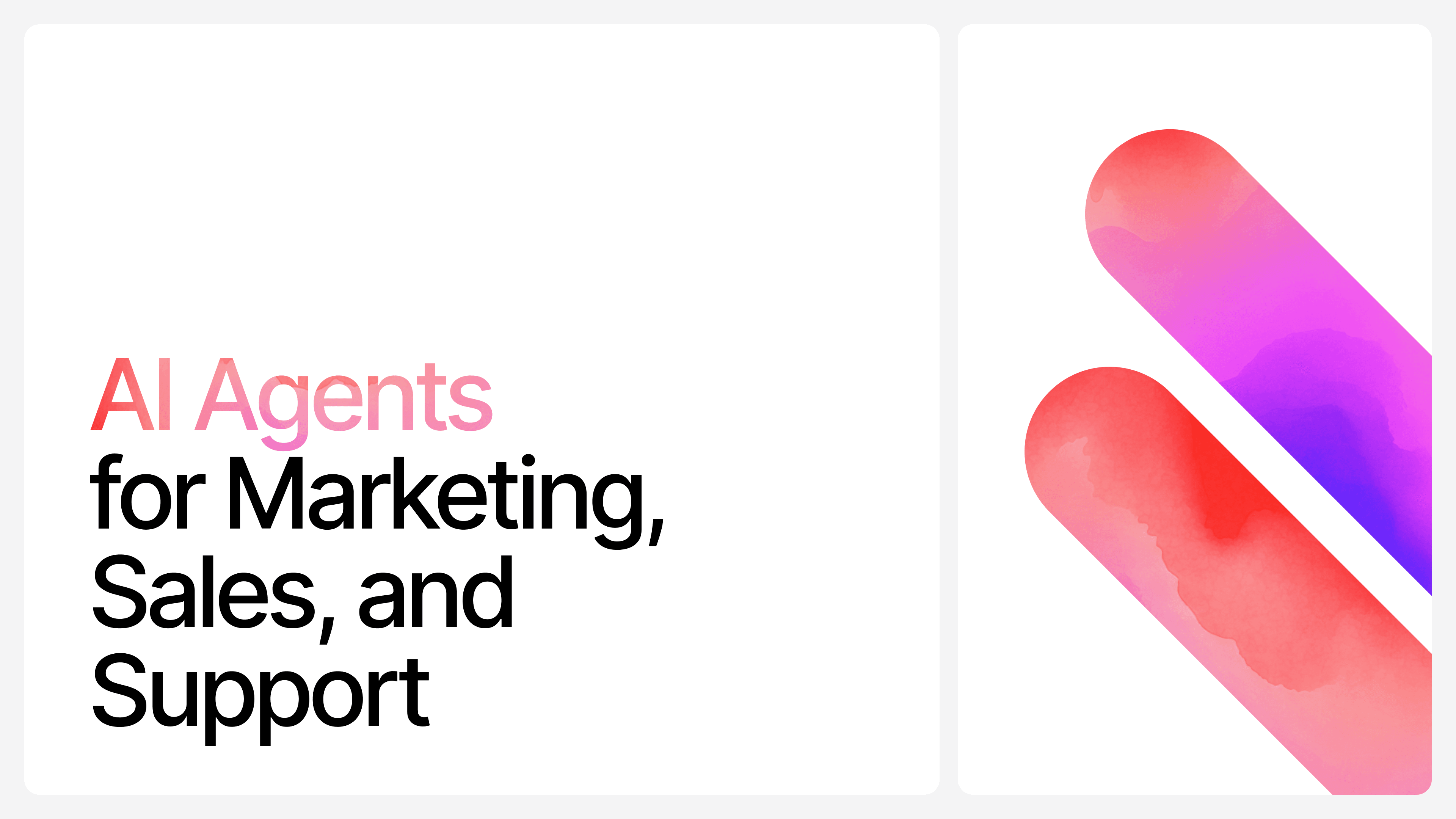AI Chatbots for Small Businesses: 2026 Guide
Ilias Ism
Jun 26, 2024
10 min read
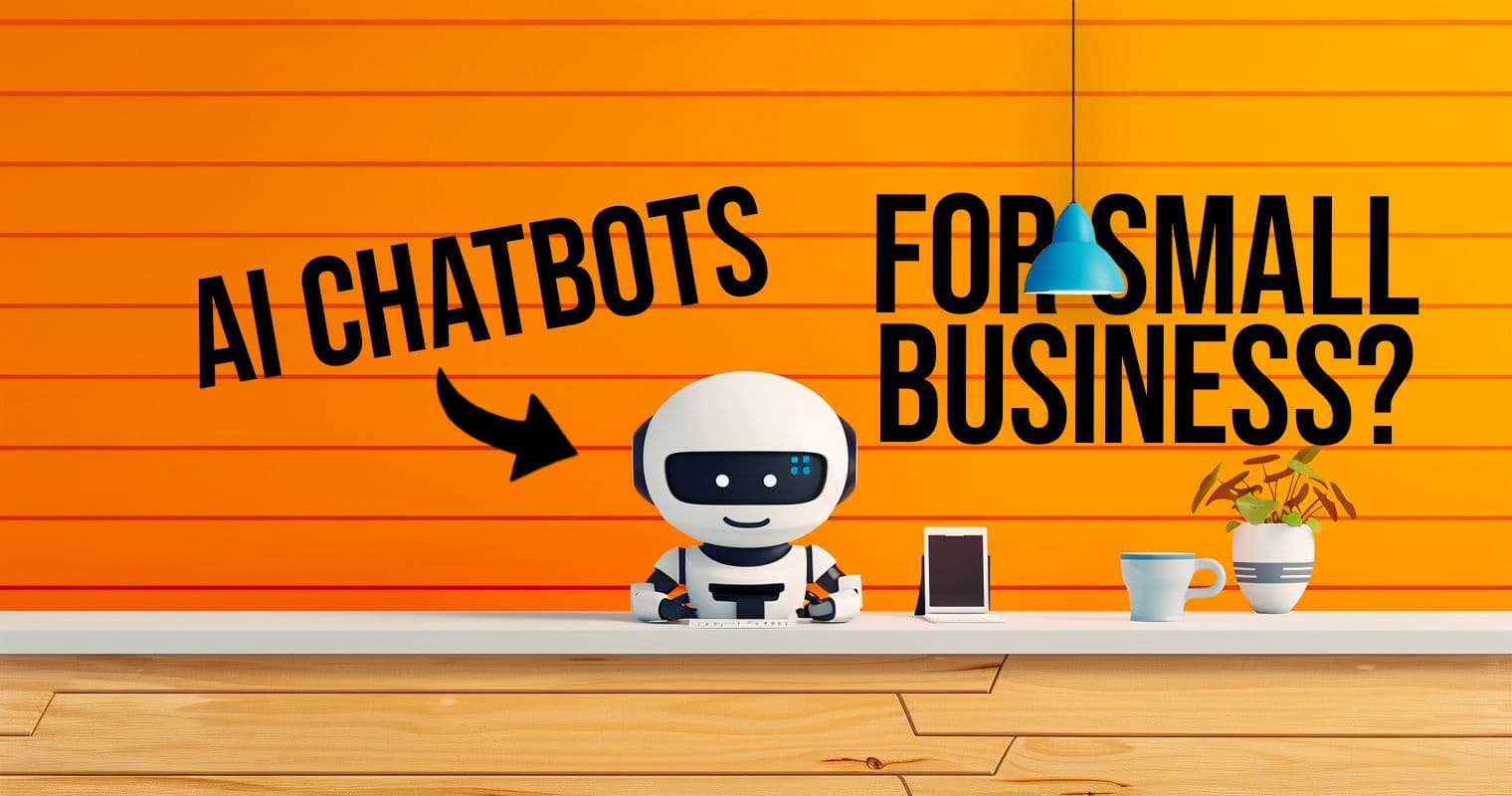
Small businesses constantly seek innovative ways to enhance customer experience, streamline operations, and boost their bottom line.
Enter AI chatbots—the technology changing how small businesses interact with customers.
This report will explore the world of AI chatbots, their benefits for small businesses, and how to implement them effectively.
We'll also look at some inspiring examples and address common concerns.
Let's dive in and discover how AI chatbots can transform your small business!
What Are AI Chatbots?
![[object Object]](/_next/image?url=https%3A%2F%2Fcdn.sanity.io%2Fimages%2Fi6kpkyc7%2Fprod-dataset%2Ffd32b2cc97d442ac21b6479a56a045afe02eb9fc-1520x800.jpg&w=3840&q=75)
AI chatbots are computer programs designed to simulate human conversation through text or voice interactions.
Unlike traditional chatbots that rely on pre-programmed responses, AI chatbots use machine learning and natural language processing to understand context, learn from interactions, and provide more nuanced and personalized responses.
For small businesses, AI chatbots represent a powerful tool to enhance customer service, automate routine tasks, and provide 24/7 support without the need for a large team.
6 Benefits of AI Chatbots for Small Businesses
Implementing AI chatbots can bring numerous advantages to small businesses.
Here are some key benefits:
1. 24/7 Customer Support
![[object Object]](/_next/image?url=https%3A%2F%2Fcdn.sanity.io%2Fimages%2Fi6kpkyc7%2Fprod-dataset%2F0acd2d33859add9b289f438e0957849230c9a3a7-1520x800.jpg&w=3840&q=75)
Example: "Always-On Assistant"
Imagine a small online boutique that can now offer round-the-clock customer support without hiring additional staff.
Customers can get instant answers about product availability, sizing, or shipping at any time, improving satisfaction and potentially boosting sales.
2. Cost-Effective Customer Service
![[object Object]](/_next/image?url=https%3A%2F%2Fcdn.sanity.io%2Fimages%2Fi6kpkyc7%2Fprod-dataset%2Fe7f01d6405d05f5158d8c1f5f7cce4f4ec1d16b5-1520x800.jpg&w=3840&q=75)
Example: "The Virtual Team Member"
A startup with limited startup resources can use an AI chatbot to handle common customer queries, freeing up human agents to focus on more complex issues.
This approach can significantly reduce operational costs while maintaining high-quality customer service.
3. Lead Generation and Qualification
![[object Object]](/_next/image?url=https%3A%2F%2Fcdn.sanity.io%2Fimages%2Fi6kpkyc7%2Fprod-dataset%2Fd1cf81b4e88dc785c56c0efffaf64b7f979a2ad7-1520x800.jpg&w=3840&q=75)
Example: "The Tireless Sales Rep"
A real estate agency can use an AI chatbot to engage website visitors, collect information about their property preferences, and schedule viewings.
This automated lead generation process can work 24/7, capturing and qualifying leads even outside business hours.
4. Personalized Customer Experiences
![[object Object]](/_next/image?url=https%3A%2F%2Fcdn.sanity.io%2Fimages%2Fi6kpkyc7%2Fprod-dataset%2F4f794f3b9b64ebd8140b3701be7a8c88d0a4172b-1520x800.jpg&w=3840&q=75)
Example: "The Custom Concierge"
An e-commerce store can use AI chatbots to provide personalized product recommendations based on a customer's browsing history and preferences, enhancing the shopping experience and potentially increasing sales.
5. Booking and Reservations
![[object Object]](/_next/image?url=https%3A%2F%2Fcdn.sanity.io%2Fimages%2Fi6kpkyc7%2Fprod-dataset%2F90919b750f711bdc7b8fa7b8a7074a7b52e5bbfe-1520x800.png&w=3840&q=75)
Example: "The Efficient Scheduler"
A small salon or spa can use an AI chatbot to handle appointment bookings or, if they want to maximize their space even more, they can integrate it with a salon software for booth renters from Booksy. Automated reminders can reduce no-shows and free up staff to focus on providing services.
6. Valuable Customer Insights
![[object Object]](/_next/image?url=https%3A%2F%2Fcdn.sanity.io%2Fimages%2Fi6kpkyc7%2Fprod-dataset%2Ff811657bb3e8e6919888a10fee032dd00d3fed50-1520x800.png&w=3840&q=75)
Example: "The Data Miner"
By analyzing chatbot interactions, a small business can gain insights into customer preferences, common pain points, and frequently asked questions, informing product development and marketing strategies.
Getting Started with AI Chatbots
Before you jump into using chatbots, it’s a good idea to make sure your business is set up for success. Structuring your company as an LLC not only provides legal protection but also reinforces credibility—factors that can influence customer trust when engaging with automated systems. Choosing one of the best LLC services can streamline the process, giving you peace of mind while presenting your business as a reliable and professional entity.
How to Implement AI Chatbots in Your Small Business
![[object Object]](/_next/image?url=https%3A%2F%2Fcdn.sanity.io%2Fimages%2Fi6kpkyc7%2Fprod-dataset%2Fbff840fdc934c80acdddb195024b18bc0016ecd7-1520x800.png&w=3840&q=75)
Implementing AI chatbots doesn't have to be complicated. Here's a step-by-step guide to get you started:
Identify Your Needs: Determine the primary purposes for your chatbot (e.g., customer service, lead generation, sales support).
Choose the Right Platform: Select a chatbot platform that aligns with your business needs and technical capabilities. Options range from no-code solutions to more advanced platforms for developers.
Design Your Chatbot's Personality: Create a persona for your chatbot that reflects your brand voice and values. Collaborating with a team experienced in ai design services can help ensure your chatbot feels human, brand-aligned, and intuitive from the first interaction
Develop Your Chatbot's Knowledge Base: Compile FAQs, product information, and other relevant data to form your chatbot's initial knowledge base.
Train Your Chatbot: Use historical customer interaction data to train your AI chatbot in understanding and responding to various queries.
Test Thoroughly: Before going live, test your chatbot extensively to ensure it handles a wide range of scenarios correctly.
Deploy and Monitor: Launch your chatbot and continuously monitor its performance, making adjustments as needed.
Gather Feedback and Iterate: Collect user feedback and use it to improve your chatbot's functionality and effectiveness over time.
10 Creative Ways Small Businesses Are Using AI Chatbots
Let's explore some innovative applications of AI chatbots in small businesses:
Virtual Shopping Assistant: A boutique with online clothing store uses an AI chatbot to help customers find the perfect outfit based on their style preferences and body type.
Multilingual Customer Support: A small tour operator employs an AI chatbot capable of communicating in multiple languages, expanding their reach to international customers. With international calling, the operator ensures smooth communication with global travelers.
Product Customization Guide: A custom jewelry maker uses an AI chatbot to guide customers through the process of designing their own pieces.
Restaurant Order Taker: A local restaurant implements an AI chatbot for taking orders and reservations, reducing wait times and improving accuracy.
Fitness Coach: A personal training studio uses an AI chatbot to provide workout tips, track progress, and motivate clients between sessions.
Legal Assistant: A small law firm employs an AI chatbot to handle initial client intake, scheduling, and basic legal information queries.
Real Estate Matchmaker: A boutique real estate agency uses an AI chatbot to match potential buyers with properties based on their preferences and budget.
Event Planner: A party supply store implements an AI chatbot to help customers plan events, suggesting themes, decorations, party favors and even recommending corporate event venues to match the occasion.
Insurance Advisor: A local insurance agency uses an AI chatbot to provide quick life insurance quotes and answer basic policy questions.
Virtual Tutor: An online tutoring service employs AI chatbots to provide instant homework help and study tips to students.
Invoice Assistant: A small business can enhance its administrative efficiency by integrating an AI chatbot with financial tools. For instance, the chatbot could guide users through billing tasks by utilizing Zintego's Online Free Invoice Generator to quickly create and send professional invoices directly through the chat interface.
Overcoming Common Challenges with AI Chatbots
While AI chatbots offer numerous benefits, small businesses may face some challenges in implementation. Here's how to address common concerns:
1. Limited AI Knowledge
Solution: Start with user-friendly, no-code platforms that offer templates and easy customization options. Many providers offer tutorials and support to help you get started.
2. Integration with Existing Systems
Solution: Choose a chatbot platform that offers pre-built integrations with popular business tools. Alternatively, consider working with a developer to create custom integrations.
3. Maintaining a Human Touch
Solution: Design your chatbot to have a friendly, conversational tone. Ensure there's an easy way for users to connect with a human agent when needed.
4. Handling Complex Queries
Solution: Program your chatbot to recognize when a query is too complex and smoothly transfer the conversation to a human agent.
5. Data Privacy Concerns
Solution: Choose a chatbot platform that complies with data protection regulations. Be transparent with users about data collection and usage
The Future of AI Chatbots for Small Businesses
As AI technology continues to evolve, we can expect even more sophisticated chatbot capabilities in the near future:
Advanced Natural Language Processing: Chatbots will become even better at understanding context and nuance in human language.
Emotion Recognition: Future chatbots may be able to detect and respond to customer emotions, providing more empathetic interactions.
Predictive Analytics: AI chatbots will use historical data to predict customer needs, optimize lead generation, and proactively offer solutions.
Voice-Activated Chatbots: As voice technology improves, we'll see more integration of voice-activated AI assistants in small business operations.
Augmented Reality Integration: Chatbots may guide customers through AR experiences, such as virtually trying on products or visualizing furniture in their homes.
Conclusion: Embracing the AI Chatbot Revolution
AI chatbots represent a significant opportunity for small businesses to enhance customer experiences, streamline operations, and drive growth. By providing 24/7 support, personalizing interactions, and automating routine tasks, chatbots can level the playing field, allowing small businesses to compete with larger corporations in terms of customer service and engagement.
As we've seen, implementing AI chatbots doesn't have to be a daunting task. With the right approach and tools, even businesses with limited technical expertise can harness the power of this technology.
Remember, the key to success with AI chatbots is to start small, focus on solving specific problems for your customers, and continuously refine and improve based on feedback and data.
Are you ready to take your small business to the next level with AI chatbots? The future of customer interaction is here – it's time to join the conversation.
Share this article:
